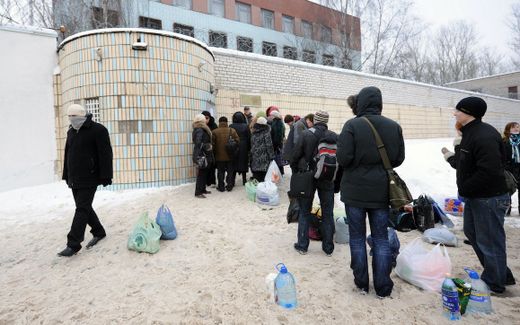Belarus introduces death punishment for “attempted terrorism”

President Lukashenko. Photo EPA, Sergey Guneev
Eastern Europe
President Lukashenko of Belarus signed a new law on the death penalty in case of terrorism on Wednesday. Several opposition activists face these charges. In the former Soviet republic, opposition activities are often seen as terrorism.
The Parliament of Belarus already approved a bill on May 4 to amend the country’s criminal code, introducing capital punishment for acts of “attempted terrorism.”
Previously, the law assigned the death penalty to perpetrators committing terrorist acts that resulted in casualties, The Kyiv Independent writes.
Belarus’ Secret Service (KGB) has a long list of alleged “terrorists”, which include the “guerrillas” that disrupted the country’s national railway earlier this year. The new legislation further intimidates those who oppose Belarusian dictator Alexander Lukashenko. Also, Svetlana Tikhanovskaya, who ran against the President in 2020, is named in connection with terrorism, as is reported by The Moscow Times. She lives in Lithuania at the moment.
Belarus remains the only country in Europe to impose capital punishment. While human rights activists had hoped for a moratorium on the practice before 2020, its application has broadened.
Actively opposing Belarus’ involvement in Russia’s ongoing war against Ukraine may now lead to death.
The Moscow Patriarchate of the Russian Orthodox Church –that is also presiding over the Church in Belarus– has expressed resistance against the death penalty in general, and also in Belarus.
National railroads
The amendment to Belarus’ criminal code was likely prompted by the ongoing sabotage attempts on its national railroads, which have been used extensively by the Russian military.
Since the beginning of the war between Russia and Ukraine, the national railway of Belarus –Russia’s ally– has reported two cyberattacks targeting its internal networks, which paralyzed its automated operations for two weeks. The “railway guerrillas” burned down relay panels, slowing down the movement of trains loaded with weapons, in some cases stopping them entirely.
Belarus labelled these attacks acts of terrorism and has arrested nearly 60 citizens. In addition to the railroad saboteurs, at least 26 people recognized as political prisoners by various human rights groups have been charged with attempted terrorism. Furthermore, Belarus’ KGB lists 42 Belarusian citizens and three organizations as “involved in terrorism activities.”
Related Articles






